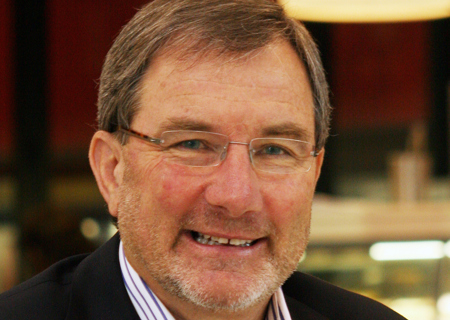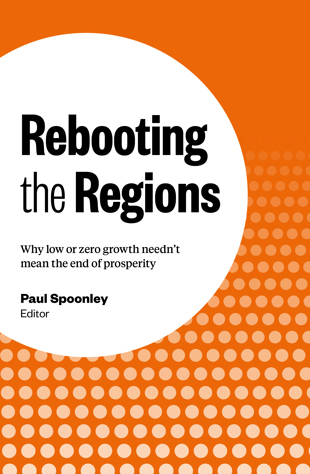Now that it’s published, what pleases you most about Rebooting the Regions?
The fact that we are focusing on a key political and policy issue — the wellbeing and future of regions — and bringing some new perspectives to these issues.
Why is it important?
There is considerable focus on the economic potential and challenges of regions, but a key aspect is overlooked — the people dimension, and in particular, the fact that the demography of New Zealand and its regions is changing dramatically. Population stagnation is often overlooked, or denied. Let’s have a debate about people, and the implications for the future of regions.
The line-up of contributors is pretty impressive. Who’s in it?
We have some well-established scholars like Natalie Jackson, Jacques Poot and Christine Cheyne, but it is great to see some of our recent graduates contributing their views and research. We need new thinking and these graduates (who are working in key jobs) provide new perspectives. Fantastic! We need to be challenged on such important issues.
Tell us about one new thing that you discovered while writing and editing it.
I sort of knew about how dramatic the demographic change would be, but Natalie’s work provides the detail. Do we really understand how significant and far-reaching these changes are? Are we prepared to think innovatively about what is happening? Do we have good leadership on these issues?
Are you hopeful about the economic future of New Zealand’s regions?
Some regions — such as Auckland, Waikato, Bay of Plenty — will do really well, although population and economic growth will bring pressures on housing availability and affordability. But other regions will struggle. Northland, the East Coast and the West Coast are going to face economic and demographic challenges. Then there will be those in the middle. We need to discuss some critical issues for all regions: population stagnation, jobless economic growth, immigration and the labour, especially skilled labour, supply.
What do you hope the essays in the book will inspire regional leaders to do?
We need regional leaders to engage with the issues and to be honest and realistic about the challenges and options. Some do, many don’t. I have been involved with the Mayors’ Taskforce for Jobs and have been really impressed, but in some of our research we encounter local leaders or economic development agencies who deny that there are barriers or challenges. I am not sure that a book will change the latter, but let’s put the issues on a public agenda.
What should the government do?
The government has taken a proactive approach on some issues and regions — see the recent announcements concerning Hawke’s Bay. But the very extensive policies that you see governments implementing to counter regional decline in Europe are not apparent in New Zealand. What could be done to incentivise our businesses or people to stay or be attracted to regions? Should the government dampen the rapid growth of Auckland and look to redistribute that growth to regions? Should the government distribute some of its departments and activities?
What’s the best time of day for you for writing and editing?
I am a morning person, so I try to write 1000 to 3000 words on one or two days per week. It often does not happen like this — and I get told off by publishers! Editing is a different matter. I do this anywhere, anytime. I quite enjoy the editing: it means the end is nigh!
You are a prolific writer and commentator and you also have a major university role. How do you find the time to write?
By being really disciplined. The challenge with the Pro Vice-Chancellor role is that while some of my time is structured, a lot is not. It is difficult to anticipate what will land on my desk in any given day. That is just a reality of the day job. So writing — which I enjoy — is something of a luxury. But I persevere, and get it done as I can.
What are you reading at the moment?
The Japanese Lover by Isabel Allende, who I recently met in San Francisco; C. J. Sansom’s Lamentation; and the new David Silva book, The Black Widow. And I still much prefer the feel and accessibility of print books!


